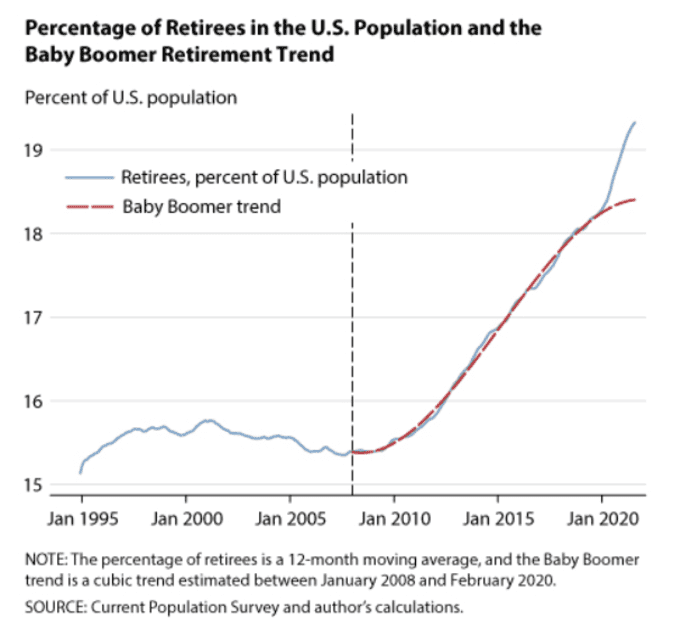This post was originally published on this site
More than 3 million Americans decided to retire earlier than they would have due to the COVID-19 pandemic, according to a new analysis.
Miguel Faria E Castro, a senior economist at the St. Louis Fed, compared retirees to the baby-boomer trend to distinguish between “normal” and “excess” retirements. As of August, he found, there were slightly over 3 million excess retirements, which is more than half of the 5.25 million people who have left the labor force since the beginning of the pandemic.

He speculated on two key motivations. One is, the excess retirees are older people, who are especially vulnerable to infection and death. But another reason is the surge in asset prices — namely the stock market and housing market.
“Standard theories of household behavior predict that when people get richer, they work less, and there is some evidence that the evolution of asset values influenced labor force participation in previous recessions, especially for those closer to retirement,” he said.
Through Friday, the S&P 500
SPX,
has more than doubled — climbed 103% — from its bear-market low in March 2020. The Case-Shiller 20-city composite of house prices has gained 22% since March 2020.
A big question confronting the Fed is whether these “excess” retirees will, at later point, re-enter the jobs market. “If they are [lost permanently], then the amount of slack in the labor market may be smaller than the 5.25 million ‘lost workers’ may suggest. However, many of these new retirees may decide to return to the labor force, which will depend on personal factors as well as aggregate labor market conditions,” said the economist.

